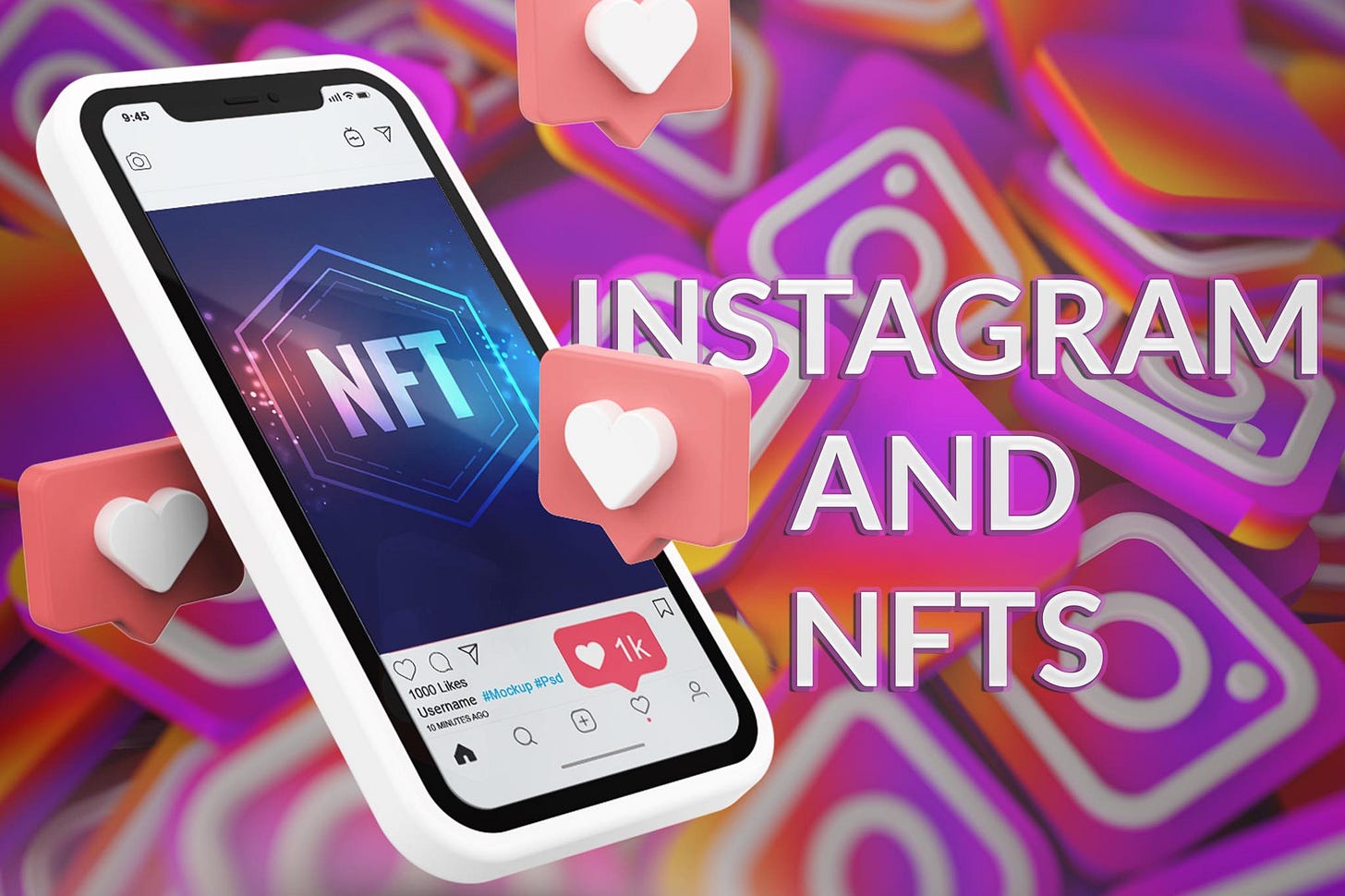"Wen" Web3 Mainstream Adoption?
NFTs will be mainstream when we stop calling them NFTs
TLDR:
Paradigm shifting technologies take a long time to go mainstream
The Internet became mainstream when we stopped “surfing the web” and began watching Netflix and listening to Spotify, ie. focusing on the apps not the tech
Upcoming adoption I believe will be driven by large Games and Web2 companies
Being a builder today in the bear market puts you ahead of 99% of people
If you are in the Web3 space right now then you’ve been deep in a bear market for over a year. Last year there was blood on the streets with all sorts of different crypto and NFT companies falling apart and the value of most assets in the space dropping dramatically.
But if you are still here then you have felt the brunt of the pain and are a steadfast believer. You’re probably shouting wen adoption?
Everyone who’s still around thinks this technology is going to fundamentally change things and almost everyone wants mainstream adoption to come faster because they think new entrants will push up the price of their tokens.
It’s definitely true that more demand will bring more price action with desirable tokens and NFTs having their price pushed up. Plus it’s also true that with more people using this tech we’ll see more innovations yet unimaginable.
So when will this mythical mainstream adoption arrive?
Web3 today is like the Internet in the 90s
Web3 tech is paradigm shifting as it literally creates scarcity and ownership in the digital world. When trying to understand the evolution of paradigm shifting tech its best to look at other historically significant technologies as a parallel. Many people compare Web3 today to the Internet in the 90s and there are good comparisons to be made here.
The base Internet protocols were created in the 1970s by DARPA but it was only in the 90s when Tim Berners Lee invented the World Wide Web and fibre optic cables were created that we began to see the popularisation of the Internet. Similarly Satoshi created Bitcoin in 2008 but the underlying technologies that grew to become Web3 such as Ethereum, smart contracts and NFTs have only really matured in the last few years.
Back in the 90s all sorts of “internet businesses” that ultimately didn’t make sense sprung up and many IPOs made millions of dollars based on vague promises. Genuine business execution was put in second place to hype and sales and all sorts of snake oil was peddled to people who didn’t really understand what was going on. Here once again a similar parallel can be drawn to the recent crypto and Web3 cycles of hype and mania where tokens and NFTs were sold on a vague promise.
At the end of the 90s the infamous “dot com crash” left a lot of companies to die out and there was blood on the streets with most IPO’d “internet businesses” trending to zero and most of the people who were just there for the fad leaving. In Web3, we’ve seen the exact same pattern happen with most projects trending to zero and “tourists” who were looking to make a quick buck largely leaving the space.
The parallels are very clear. Yet we also know how the story of the Internet evolved as it grew to become one of the most important technologies of our time, and continues to grow! Today not having an Internet component to your business makes you the odd business, not the other way around.
I’d argue the exact same thing is going to happen with Web3.
A quick yet relevant tangent is that Web3 is innately tangled with cryptocurrency and Bitcoin, which has regular 4 year cycles of boom and bust. These tend to exacerbate this adoption phenomenon and I will write a separate blog post about these cycles next week. The important take away here though is that Web3 adoption is beyond any specific crypto cycle, we need genuine use-cases to lead to true mainstream adoption.
What does mainstream adoption look like?
Continuing with the example of the Internet, in its early days people would talk about how they were “surfing the web”. This was because accessing the Internet was special in itself and the output you were achieving from it wasn’t as much. Similarly many people tend to just buy and hold NFTs today just for the sake of speculation without really understanding a genuine use-case for them outside of this.
Today hearing someone say they are “surfing the web” sounds kind of stupid and even non-sensical - how can you surf a digital space? Instead we talk about watching Netflix, listening to Spotify, searching on Google, or even asking ChatGPT. We’ve stopped speaking about using the technology and instead about what we use it for. The shift happened gradually but the the difference is significant.
Web3 technology will have reached mainstream adoption when we stop talking about using Web3 tech and instead talk about using the applications built with it!
Just as the Internet has become one of the most important technologies of the past century and most people can’t see themselves living their lives without it, I’d argue Web3 tech will grow to be a layer of the Internet that is taken for granted and people will just sort of assume it always existed.
An example of a company that’s successfully already began to talk about the application rather than the tech is Reddit who created in-app avatars that were underpinned by NFTs on the Polygon network. These were not marketed as NFTs but rather as avatars that are “digital collectibles”. The fact that it has been made possible by NFTs is secondary, as the technology is not what is important its the use-case that is. I’ve already spoken a bit about Reddit in another post on the topic of self-custody as they are a great case study of a successful business using NFT tech.
How will mainstream adoption happen?
The future is uncertain and a crystal ball to peep into it doesn’t exist. My personal feeling though is that the next big waves for Web3 and NFTs will come from large Games and Web2 companies coming into the space.
Games is such a natural fit. For example as soon as a game like Fortnite begins to underpin their in-game character skins with NFTs then all Fortnite users will suddenly be able to re-sell them on a secondary market and it will generate millions of new Web3 adopters along with millions of dollars of secondary sales revenue for Epic Games. Then once one big game has done it the rest will no doubt quickly follow suit. Importantly people will be talking about “skins” not NFTs, the app not the tech.
A big Web2 to Web3 example is Meta’s Instagram who have publicly announced that they plan to introduce NFTs to their platform. Instagram has 500m daily active users, which is over 6% of the 8 billion people on the planet. Whatever they introduce, whether its just the ability to turn a post into an NFT or a full blown NFT marketplace for people to buy and sell their Instagram posts, the potential for onboarding new people here is disproportionately huge. Importantly this will also re-program the way people talk about the tech, as people will discuss the latest post they bought from their favourite influencer and not the NFTs underpinning them.
Undoubtedly these large Games and Web2 companies have huge potential to usher in mainstream adoption and they’ll do so without talking about NFTs but rather about the benefits for users of using their new products that just happen to be built with NFTs.
Worth noting is that other aspects of this space like DeFi and crypto tokens will likely grow from a separate angle. Perhaps it could happen through traditional finance beginning to adopt money that’s more similar to cryptocurrency for example with Central Banks adopting CBDCs. The key as always is that for mainstream adoption the application comes first and the technology comes second.
To you as a reader though what does this all mean?
Well just the fact you are reading this and currently in the Web3 space puts you ahead of 99% of other people who have no idea how this space works or what is happening.
As the use-cases for the technology grow and more people begin to focus on using Web3 tech these new entrants will see you who’ve been around for years as the people to go to as leaders in the space.
So just make sure to keep at it, keep building and we’ll accelerate mainstream adoption!








